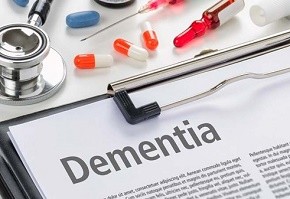DEMENTIA SUPPLEMENTS: People take certain vitamins and supplements to help prevent dementia. They also take them to improve brain health.
The term ‘dementia’ describes a wide range of memory and thinking conditions.
But in fact, Alzheimer’s disease accounts for 60-80% of all dementia cases.
A panel of experts investigated the science behind the claims. They researched claims made by the producers of Vitamin B and D, fish oil, and Ginkgo Biloba. They found there was a distinct lack of ‘robust evidence’.
The report also issued a warning about using online dementia tests. One free app in particular charges £1,275 for their online test of dementia development.
The concern is that this kind of diagnosis could result in ‘false positives’. That may increase the risk of creating ‘unduly’ worried participants.
Mild Cognitive Impairment Diagnosis
There has been extensive research into brain health. Many people diagnosed with mild cognitive impairment do not always develop dementia.
You can get some dementia tests online using a digital application. But, it often fails to ask even the most basic questions, such as the user’s gender or age.
Note: Age and sex are the strongest risk factors for dementia.
There were further concerns about the ‘Food for the Brain’ app. It recommended taking additional tests and Vitamin B supplement. It got prescribed even though those taking the test performed above or at the mean average for their age.
The expert panel who made the report included a GP, a professor of public health medicine, and a dietitian. They studied a selection of supplements which get sold in many high-street stores. They are also easy to buy online via the Internet.
 Common Alzheimer and dementia supplements include:
Common Alzheimer and dementia supplements include:
- Bioglan Calamari Gold capsules.
- BrainSmart Memory capsules.
- Efamol Brain Active Memory capsules.
- Boots Sharp Mind tablets.
One of the supplements targeted by the report made strong claims for using vitamins, minerals, and herbal ingredients. It said they could protect against vascular and brain cell damage.
It also mentioned stroke prevention, which can also lead to dementia. Another claimed that taking their ingredients could maintain memory. It said they increase brain function and mental performance.
Unsubstantiated by European Food Safety Authority
Professional research suggests that the claims were ‘potentially’ misleading. They were not substantiated by the European Food Safety Authority. Following the ‘Which?’ report findings:
- Efamol told ‘Which?’ that it did not intend to mislead consumers. It had taken down its website temporarily. They will undertake a rigorous review of marketing and the claims made for its products.
- BrainSmart said their product did not claim to prevent, cure or treat disease. Scientific data supported its efficacy. They added that they comply with all applicable rules and regulations.
- A ‘Boots’ spokesperson said Boots Sharp Mind tablets is a food supplement. It helps to support a normal healthy lifestyle and this includes a well-balanced diet.
What is Which?®
‘Which?’ has come a long way from their humble beginnings in 1957. Their first magazine got published from a converted garage in Bethnal Green. Their director was also quoted as saying:
“People with dementia, or those with a friend or family member with the condition, are often scared and worried about their diagnosis. It’s unacceptable that these companies are preying on people’s fears. They are making claims they simply cannot stack up.
We have advice for people worried about dementia. You do not need to spend time and money on expensive supplements or products like online tests or apps. There are many alternative sources of free, independent information and advice. They can help you to understand your options and the next steps”.
Conclusions about Dementia and Alzheimer’s
We understand small lifestyle changes can reduce the risk of developing dementia. Changes include eating a healthy, balanced diet, getting regular exercise, and avoiding a high intake of alcohol.
Performing everyday activities can also help to prevent dementia and Alzheimer’s disease. Examples include playing games like chess, table tennis, and reading.
National Health Service figures show there are 750,000+ people suffering from some form of dementia. By far, the most common condition is Alzheimer’s in the United Kingdom.
ALSO IN THIS SECTION
Articles on Health and Safety: Topical stories about health regulations and safety rules.
Asthma Inhalers: Medical experts call for an industry-wide standard for inhaler colour coding.
Health and Wellbeing: A guide for taking charge of your own physical and mental health.
Norovirus Winter Bug: Follow these 7 tips to defeat the sickly winter vomiting virus.
Synthetic Alcohol: Is hangover-free alcohol key to safer and improved mental health?

